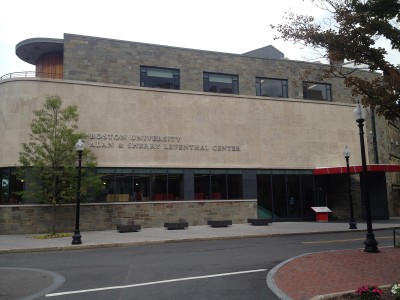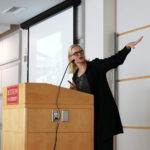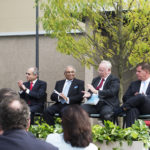
It is recommended for college admissions offices to further promote not only intellectual but also ethical engagement in its application process, according to a report titled “Turning the Tide,” released Wednesday by the Harvard Graduate School of Education’s Making Caring Common project.
The report aimed to “reshape the college admissions process,” alleviate achievement-based pressure and increase opportunities for low-income communities, said Richard Weissbourd, the MCC project’s co-director.
“[The] college admissions process is an important way to change the messages that young people hear [and] what society values,” Weissbourd said. “In our days and other people’s days, the degree to which we evaluate achievement is the main goal of child-raising.”
Weissbourd, an HGSE lecturer, emphasized the “quality over quantity” principle in college application review.
“I hope a few years from now, freshmen in high school will be getting routinely a different set of messages from colleges — messages that emphasize of the quality of academic engagement and not the quantity of the courses or the AP courses you take,” he said. “ … The change we’re really hoping to make is less in colleges and more in the college admissions process.”
Boston University Admissions was unavailable for comment, and BU spokesperson Colin Riley wrote in an email that it is too soon for the university to have a stance on the report.
Two BU representatives — Jacob Murray, faculty director of professional education in the School of Education, and Kelly Walter, associate vice president and executive director of admissions — are among the report’s 80-plus endorsers, according to the MCC project’s official website.
Murray said he endorsed the report because it promotes broader opportunities for students of all backgrounds to attain higher education.
“Overall, it’s an education equity access issue and that higher [education], particularly this institution, is not open to everybody,” Murray said. “If we would have changed what’s valued to admissions, change the metrics that focus on engagement qualities in the community, service qualities, that would open up the opportunities for a broader array of students.”
Responding to BU’s overwhelming annual number of applicants, Murray stressed the importance of looking beyond mere quantitative academic measures and encouraged BU to experiment with the report’s recommendations.
“I wouldn’t put [academic performance] above all range of other measures,” he said. “Some of these other measures … connection to their family, to their community, … responsibility to others, to the world … these are other important attributes. There needs to be some measures of whether students could perform certain work [at a] college level.”
Commenting on BU’s current admissions performance, Murray said that similar to other institutions, BU is “still focused on performance-based criteria.” To ensure the authenticity of applications, Murray said BU needs to acquire more information about applicants in deeper detail.
“There could be a way to solicit nominations or recommendations,” he said. “Maybe pile [the report] with some subset of applicants to see how it can be done, how it can be managed, how much time is involved. This changes the application process.”
Several students said they recognized BU’s well-rounded admissions approach, especially in their own admittances to BU, but still encourage the university to meet the Harvard-issued recommendations for admissions processes.
Edgar Pizarro, a third-semester graduate student in the School of Public Health, said personal statements are essential to assessing applicants’ ethical engagement qualities.
“[Admissions counselors] really need to have a well-rounded understanding of who the individual is,” he said. “When we speak of the ethical side, we look into personal statements for that. I can say that the personal statement is a great opportunity for students to really elaborate on points that they want the admissions staff to be aware of.”
Isabella Siskin, a freshman in the College of General Studies, said she thought BU Admissions had evaluated her college application thoroughly by considering her other experiences aside from academics.
“I wasn’t the strongest student in academics, but I was really involved in other things,” she said. “I really put effort into parts of the applications other than my GPA. In high school, everyone works so hard to get to college and it’s so competitive. Maybe once you got in [to college], you already did all the work and you just need to learn now.”
Cecily Donovan, a freshman in the College of Arts and Sciences, said BU should consider adding an interview section in its application process.
“It would be an interesting addition if [BU Admissions] ends up having an interview, because it would show students in a more 360-degree [perspective],” Donovan said. “Academics are certainly important, but also giving back to the community is really important.”




